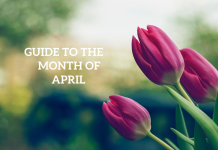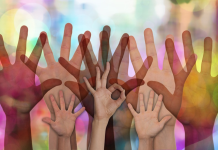Hey momma-
Do you ever feel like the amount of things that are expected of you as a part of motherhood is just impossible given the supports in place for moms and families?
Do you ever wonder how in the world your mom and grandmas and great-grandmas survived motherhood with all of the pressures and expectations?
Do you ever get down on yourself because you think you “should” be able to do it all and yet you find yourself struggling?
Listen, me too. And from what I’ve found, we aren’t alone in feeling like this. Women all over the country do too.
The Developments of Motherhood
Living in a progressive society comes with a lot of advancements and many incredible developments.
Technology has opened the doors to more information than generations before us had.
- Our kids have a plethora of options and opportunities for learning.
- Our jobs (sometimes) have more flexible options and there are always new ways a family unit is learning to function.
- We have more gadgets and toys available than we even know what to do with.
- We can track our baby’s size during pregnancy and know what size fruit it corresponds with each week.
- We can anticipate the next growth spurt or clingy phase with the simple login to an app.
- We know so many more “best” and “safest” practices for raising our kids. However, in all of this progress, there are also a lot of things that have been lost- and it heavily affects us as moms.
We Aren’t Meant to be Alone in Motherhood
I am convinced we are not meant to do motherhood alone. Even more specifically, I am passionate about the truth that we are not meant to do postpartum alone, but the stark reality is that so many women are.
Postpartum is defined as “the period of time following childbirth.” This is pretty ambiguous and here in the United States, we have just a couple of social markers that give this more definition.
- Sometimes people consider postpartum to be the time before you go to your medical provider for a check-up. This usually falls between 4-8 weeks.
- Some people see postpartum as the length of maternity leave, which in the US is often 12 weeks, however, many women are expected to return to work before this and that is an atrocity for another story.

Thankfully, more and more research is emerging to define postpartum as a time frame up to two years after giving birth. This makes a lot more sense because the transitions that happen following birth are not just immediate, but have continual effects.
Again, we are not meant to do postpartum alone. Our ancestors might not have had access to all the Google searches we have, but they had a community full of other women who lived in close proximity and even sometimes in their own multi-family or multi-generational homes. They saw other women near them experience postpartum- normalizing the experience of a new mom. They had other women nearby, so they weren’t left alone in their home with their new baby wondering if they were the only one experiencing some of the darkness and difficulties. Information was passed down and taught, now it is read on the Internet and you’re expected to get it right the first time because you’re a mom. The standards have shifted and with it, the access to truly accessing authentic stories and information and support.
Previously, there were fewer means of comparison- generations ago you actually had to leave your house to see the life of another mom to compare yourself to. Now all you have to do is open up your phone and scroll through to see how much more glamorous and blissful other moms seem to be. (Side Note- they probably aren’t. Can we just ditch this Instagram perfect curated and filtered trend? Can we just keep it real around here?!)
Making Progress = More Pressure

With all of the progress we have experienced in our society and all of the new opportunities available to us as mothers and families, there also comes the consequence of having these heightened expectations with less support available to us. Even with supportive partners and families, friends and colleagues, the mound of “shoulds” has grown with information, the Internet, and social media. It’s no surprise that moms say they feel more overwhelmed.
If you are feeling unlike yourself for a prolonged time, make sure to address your mental health. According to the March of Dimes, PPD (Postpartum Depression) is the most common complication for women who have just had a baby. It affects up to 1 in 7 women. Overall, maternal mental health disorders affect 1 in 5 women.
You are enough.
Hey momma- chances are you’re doing enough. More than enough. You are already enough. I know there are pressures from every side to do more. Be more. Show more. You don’t have to. We don’t have to. When we give ourselves space to need help, accept help, share authentic stories with one another and realize we aren’t alone, we gain our power back as collective mothers. When we normalize that postpartum is a difficult transition, we give one another the freedom to be imperfect. When we share that motherhood isn’t always blissful, we share with one another the gift to be ourselves and not have to put a rosy filter on everything. We might not be able to bring back the “village” in the traditional sense of support, but we can fight for a stronger “village” for one another in advocating for one another, supporting one another even in our differences, and showing up in our true stories. I’m not defined by these heightened societal expectations and you aren’t either.
For additional ideas on how to find your tribe in Columbus, click here.
















